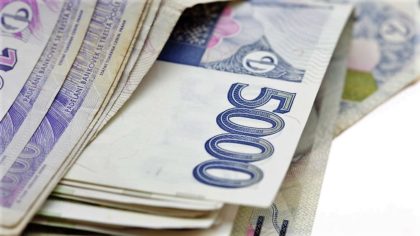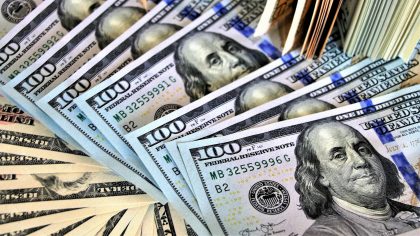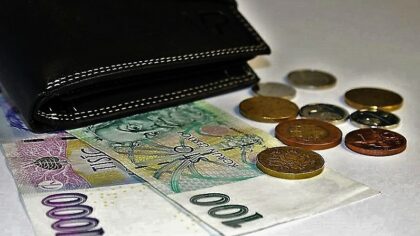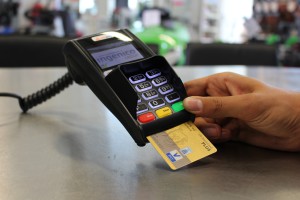And which is a dilemma, due to the fact advertising for dollars is a somewhat pricey point for the vendor. They must take a look at the authenticity and harm of the revenue received, they will have to shop and kind the money previously acquired (so that the banking institutions are eager to get it in excess of, ed) and transportation to banking companies.
Storage normally takes up place, authentication and sorting delays, and all funds administration calls for costly protection measures towards intruders. Additionally, there is a frequent concern of humiliation in the kind of a lack of “adjust to return”, and in new many years the subject of hygiene has also attained great importance.
By enacting the proper to hard cash payment, we consequently impose sizeable prices on retailers. A cashless alternative has been all around for several a long time. The latter can occasionally be commonly far more effective to the trader (particularly if you you should not use hard cash payments to evade taxes).
The variance in price involving the two variants and the sum of their expenses can occasionally be so excellent that thanks to the obligation to settle for dollars, the vendor in dilemma both does not even open up his shop, or only accepts hard cash. Possibly all shoppers go through, or at least those people who you should not mind cashless payment or find it improved for a variety of factors.
An indicator that the level of popularity of non-funds compared to income payments is increasing can be acquired, for instance, by establishing the ratio of the volumes of money the Czech populace holds in cash vs . examining accounts. (these accounts are used as the main supply of non-money payments).
Liquidity in this comparison is losing body weight about the extensive expression, even though this trend is only at times interrupted by a shock (covid, invasion of Ukraine) or a methodological modify in the noted data.
The reality that the amount of money of cash put in in the Czech Republic by card considering that 2015 appears similar (no previous day) is increasing speedily while the total of cash that has been withdrawn from an ATM (commonly probably for hard cash payment) practically stagnant.
 ––––
––––
A essential argument in favor of demanding merchants to settle for dollars is that quite a few of us are bothered by the decline of anonymity or the generation of a “fingerprint” with cashless payments. In addition, there is also the concern that some of our fellow citizens have (particularly the older ones) cashless payment is not obtainable since they you should not have a bank account or payment card configured for it.
For the sake of completeness, we add that for payments worth far more than CZK 270,000, the vendor has a authorized obligation to refuse payment in hard cash: in this case, in the eyes of lawmakers, endeavours to overcome money laundering have prevailed more than factors of anonymity.
Abroad, the scenario is not uniform. For case in point in Sweden and the United States (with the probability of deviation in the person states of the federation) it is expressly allowed to refuse dollars. In numerous other international locations, this subject is the subject of debate and, in exercise, of a sure software “fog”. Just after all, even in the Czech Republic a few a long time ago, the Ministry of Finance stated that there is no absolute obligation to acknowledge dollars from Czech guidelines.
The concentrate of the dispute is for that reason a conflict of two pursuits: on the a single hand, the desire of some payers to stay clear of the leakage of private data on their payments (and probably avoid owning to open or use a financial institution account at all)and, on the other hand, the desire of other payers and some merchants to avoid the bothersome areas of using money.
 ––––
––––
In these circumstances, it appears to be proper to me not to give legislative choice to either system of payment. And consequently make it possible for the industry to come across a answer on its very own. Only a comparison of the demand for each individual payment process and its offer can reveal which of the variables mentioned is more powerful for most of us.
If a lot of purchasers value shelling out in income, and if this payment technique is not much far more high priced to the seller than cashless, the dollars solution will remain a make a difference of course. In any other case, the market place will transfer away from liquidity on its have.
Numerous merchants would likely preserve paying out in money once again, but most likely at an further price. Just as the suitable to continue on touring by carriage was not founded soon after the introduction of trains and buses, so if an individual needs these kinds of transport these days, they will find choices, but have to pay back more compared to present day community transportation.
Or similar to how, following the introduction of usefulness retailers and pump stores, the correct to buy foodstuff inside of them at the same rate as a regular retail outlet was not introduced, so if another person still desires to invest in foods late at night or a pump, generally have to spend further than ordinary stores. There are numerous examples of this when you have to pay back more for some convenience or to lessen some risks.
 ––––
––––
If, even in the scenario of a hard cash withdrawal, we would like to shield the interests of those people who are not outfitted to pay out devoid of hard cash, this can be solved – pursuing the design, for instance, of social advantages – with the selective guidance of the point out.
Both in the variety of subsidies to retailers to preserve the skill to spend hard cash for such persons, or in the form of immediate consumer guidance furnished to locate a way to pay cashless right after all.
Even so, the right to income payment has basically been expressly enshrined for quite a few several years, in unique in Area 5, paragraph 1, of the Regulation on the circulation of banknotes and coins. (The legislation provides for some uncommon exceptions, these kinds of as payments with far more than fifty cash, payments with commemorative cash or payments with banknotes and cash with various damages).
The senator’s proposal consequently prospects me to a distinct conclusion: we should not only abandon the Charter of Essential Legal rights and Freedoms, but also take out the complete proper to money payment from the legislation on banknotes and coins.
 ––––
––––
The only person who need to have a long lasting obligation to acknowledge cash is the condition when someone wishes to fork out their taxes: the payment of taxes is not a voluntary transaction, and therefore the parties (i.e. the state) he ought to have been as accommodating as feasible, accepting all varieties of payment, between other points.
But we are not afraid that due to this industry strategy, cash could vanish entirely. All prospective buyers and sellers will certainly be delighted to go again to employing banknotes and coins in particular scenarios of blackouts or other crashes of cashless payment units, as nicely as a lot of retaining very good aged candles at dwelling in scenario the electricity goes out for a large amount of time.
And if we anxiety that the financial state underestimates the hazard of these functions and overestimates the readiness to use cash crises, we can introduce a authorized obligation for traders to be technically prepared to accept funds. (and banking companies to be completely ready for income withdrawals) in these types of unique instances – as right now, for illustration, it is required to have a staircase in multi-storey buildings in addition to the elevator, even if in reality it is only utilized in a specific scenario of hearth.
The writer is an economist at Česká spořitelna and a board member of the Czech Economic Modern society
(Edited editorial)
Illustrative picture: Depositphotos.com
 ––––
––––
–


